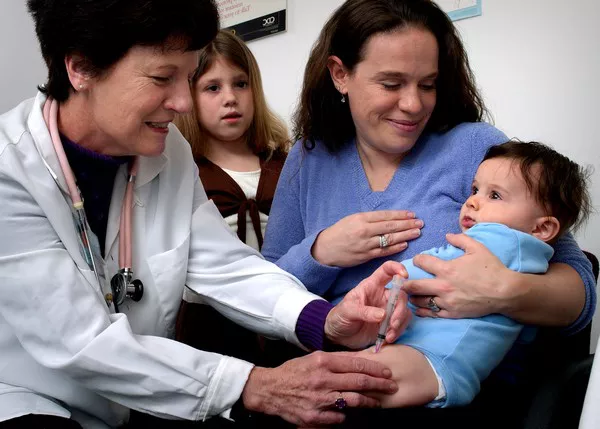Pregnancy is a transformative journey filled with anticipation, joy, and sometimes, concerns about the health and well-being of the growing baby. In cases where fetal health issues arise, seeking the expertise of a skilled fetal medicine specialist becomes paramount. These specialized doctors possess the knowledge, experience, and resources to diagnose and manage a wide range of fetal conditions, providing comprehensive care and support to expectant parents. In this comprehensive guide, we’ll explore the importance of fetal medicine specialists, key factors to consider when choosing the best doctor for fetal medicine, the role of these specialists in prenatal care, and practical tips for navigating the selection process with confidence and clarity. By gaining insight into the world of fetal medicine and finding the right doctor to guide you through this journey, you can ensure the best possible outcomes for you and your baby.
Understanding Fetal Medicine Specialists
1. What is Fetal Medicine?
Fetal medicine is a subspecialty of obstetrics and gynecology (OB/GYN) that focuses on the diagnosis, management, and treatment of fetal conditions and complications during pregnancy. Fetal medicine specialists, also known as maternal-fetal medicine (MFM) specialists or perinatologists, are physicians who undergo additional training and certification in the field of fetal medicine to provide specialized care to pregnant women and their unborn babies.
2. The Role of Fetal Medicine Specialists
Fetal medicine specialists play a crucial role in prenatal care by:
Diagnosing Fetal Conditions: Fetal medicine specialists use advanced diagnostic techniques, such as ultrasound, fetal echocardiography, and genetic testing, to identify and assess fetal abnormalities and conditions.
Providing Counseling and Support: Fetal medicine specialists offer compassionate counseling and support to expectant parents, guiding them through the diagnostic process, discussing treatment options, and addressing any concerns or questions they may have.
Managing High-Risk Pregnancies: Fetal medicine specialists manage high-risk pregnancies due to maternal or fetal complications, such as maternal medical conditions, multiple gestations, fetal growth restriction, or congenital anomalies.
Choosing the Best Doctor for Fetal Medicine
1. Board Certification and Training
When selecting a fetal medicine specialist, it’s essential to choose a doctor who is board-certified in maternal-fetal medicine and has undergone specialized training in the field of fetal medicine. Look for doctors who have completed accredited fellowship programs in maternal-fetal medicine and stay current with the latest advancements and guidelines in the field.
2. Experience and Expertise
Consider the doctor’s experience and expertise in managing a wide range of fetal conditions and complications. Look for specialists who have a track record of successfully diagnosing and treating complex fetal abnormalities, such as congenital heart defects, neural tube defects, chromosomal abnormalities, and genetic syndromes.
3. Access to Advanced Technology and Resources
Choose a fetal medicine specialist who has access to advanced diagnostic technology and resources, such as state-of-the-art ultrasound equipment, fetal MRI, and genetic testing capabilities. Access to these tools can enhance the accuracy of fetal diagnosis and provide valuable information for treatment planning and decision-making.
4. Collaborative Approach to Care
Select a doctor who takes a collaborative approach to care and works closely with a multidisciplinary team of healthcare professionals, including obstetricians, neonatologists, pediatric surgeons, genetic counselors, and other specialists. Collaboration ensures comprehensive care and coordinated management of maternal and fetal health throughout pregnancy and beyond.
5. Compassionate and Supportive Care
Choose a fetal medicine specialist who provides compassionate and supportive care to expectant parents, understanding the emotional and psychological impact of prenatal diagnosis and treatment decisions. Look for doctors who take the time to listen to your concerns, answer your questions, and involve you in the decision-making process regarding your baby’s care.
Practical Tips for Finding the Right Doctor
1. Research and Referrals
Start by researching fetal medicine specialists in your area and gathering recommendations from trusted sources, such as your obstetrician, primary care physician, or friends and family members who have experience with high-risk pregnancies or fetal conditions. Consider factors such as the doctor’s reputation, patient reviews, and hospital affiliations.
2. Schedule Consultations
Schedule consultations with multiple fetal medicine specialists to discuss your pregnancy, medical history, and any concerns or questions you may have. Use this opportunity to evaluate the doctor’s communication style, bedside manner, and approach to care, as well as to ask about their experience, expertise, and treatment philosophy.
3. Ask Questions
Come prepared with a list of questions to ask during your consultations, covering topics such as the doctor’s training and credentials, experience with specific fetal conditions, treatment options available, and potential outcomes for your baby. Don’t hesitate to inquire about the doctor’s approach to prenatal counseling, genetic testing, and long-term follow-up care.
4. Consider Accessibility and Convenience
Consider practical factors such as the location of the doctor’s practice, office hours, availability for appointments, and access to hospital facilities for prenatal testing and procedures. Choose a doctor whose practice is conveniently located and easily accessible, especially if you anticipate frequent visits or consultations throughout your pregnancy.
5. Trust Your Instincts
Ultimately, trust your instincts and choose a fetal medicine specialist whom you feel comfortable with and confident in entrusting your care and the care of your baby. Pay attention to how you feel during your interactions with the doctor and whether you feel heard, respected, and supported in your decision-making process.
Conclusion:
In conclusion, finding the best doctor for fetal medicine is a critical step in ensuring the health and well-being of both mother and baby during pregnancy. Fetal medicine specialists play a vital role in diagnosing, managing, and treating fetal conditions and complications, providing compassionate care and support to expectant parents throughout the journey. By considering factors such as board certification, experience, access to technology, collaborative approach to care, and personal rapport, women can confidently select a fetal medicine specialist who meets their needs and supports their goals for a healthy pregnancy and delivery. Remember to trust your instincts, ask questions, and advocate for the best possible care for you and your baby as you embark on this transformative and rewarding experience.


